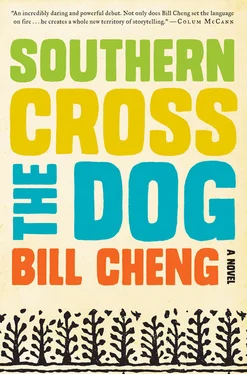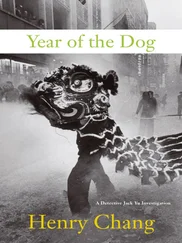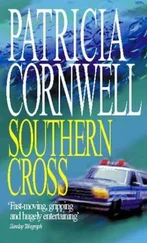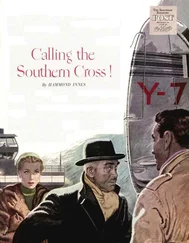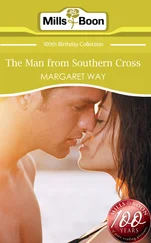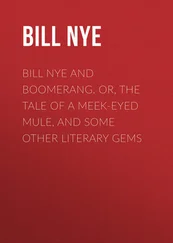Rowbear Shah’tome, he said. You nah goin’ nowhere.
THE OLDER MAN, THE ONE the others called Bossjohn, took him out to the other room, where he sat Robert down on a small stone bench. He untied the belt around his leatherskin coat. His coat splayed open, revealing the large stomach beneath his shirt. He slung off the coat and hung it on the wall and took a seat behind the table. His hands were coarse and yellow. The fingers were hatched with nick marks. In the front passage, a crepe curtain fluttered with the draft. Morning brimmed on the other side, one end lifting and folding over. Out in the front there were troughs and a small wood rack where fox pelts had been stretched to dry. Bossjohn folded his knuckles into his palm. He cleared his throat and looked wearily at Robert.
We warn’t sure you was goin’ come through. You sooffee?
Bossjohn thumped his chest. Robert nodded. Yes.
Bossjohn mimicked him, moving his head up and down solemnly, as if he was pleased that he understood.
You work’n for there bugheways. Them in there swamp?
Bugheway?
Yeah. Like you. Bugheway.
The man patted Robert on the chest.
I did, Robert said. But if I’ve been here two weeks, it figures I don’t no more. They’ll have replaced me by now.
Bossjohn stroked his beard, nodding. Men were replaceable.
Two months now, they come. They fuss our lines. Break our traps. Why?
We’re… they’re building… they need to clear the land. Make space.
Space?
A dam, he said. They’re building a dam.
Robert looked at the man and he could see he did not understand. He made a wall with his left hand and drove his knuckles into the heel. The project had been in the works for years. He tried to describe the immensity of what was happening, tried to repeat the words that had been repeated to him. A shining new South. He described what went on in the work sites. Trees were being felled. Waterways were being collapsed, expanded, redrawn.
The man had started to redden. He was breathing heavily now, the small hairs of his beard twitching. He turned back toward Robert.
How many?
How many what?
In Panther Swamp. How many bugheway?
I don’t know, Robert said. Hundreds. More.
An angry voice called out from the other room. Bossjohn let out a huff of breath and he stood up.
Stay you here, he said and walked out.
Robert found himself suddenly alone. He went to the doorway and tried to place himself within the country. In the distance, the land was hemmed in by a wide swath of tupelos arching along the horizon. There was nothing for miles — no house, no fence, no sign of a road. A thick fog was breathing through the trees. Was he still in the swamp? The air was thinner somehow, faintly musty.
He heard a noise behind him.
The rifle was trained to his heart, and behind it, the woman. Her cheek leaned into the stock, her shoulder firm against the butt.
He paused in the passage for a moment. Then he stepped back inside.
FRANKIE MADE STEW IN AN iron cauldron while Bossjohn and the younger man worked out front. In the heat, they’d stripped off their shirts, laying bare their reddening bodies. Robert watched them pass between them the limp body of a fox, consulting each other, drawing their fingers down along the fur to mark where the cuts were to be made. They hung the fox on a rack and bled its neck. It runneled down the rope, into the soil. Bossjohn tied its head to a brace as the other man separated the skin from the flesh.
Who is that? he asked.
Frankie looked out to where Robert was pointing.
That Roan. He Bossjohn’s brother.
The men wiped the sweat from their eyes and, in so doing, painted crimson tracks along their cheeks. Flies frenzied in a mean cloud around them, trying to suck the nectar from their temples. Robert looked out into the darkening evening — at two brothers — and he thought then of his own. Billy would’ve been twenty-seven now. The bones of their father’s face set like struts on his manly cheeks. Their mother’s nose broadening on his face. He would gray early like Ellis had, a bright lightning bolt of white striking the dark nap of his hair. There were the eyes, where when they were boys, Robert could already see the devilry twinkling in the corners. Almondine and mischievous. Where are you now? Under so many tons of earth, where in the vault that amalgam of meat and fat loosens from your inner walls. And those beautiful eyes of yours, burst to jellies.
He watched the brothers work. One fox, then another, then another. They moved mechanically, drawing the small blade along the milky throat. The nerves jumping in the legs. Frankie was humming behind him. She stirred the sludge in the cauldron. If he took her. If she screamed. They would paint the walls with his black guts. He could not stop thinking about his brother. Once, they fought — he forgot about what — and bloodied each other’s faces. His mama pulled them apart and lashed them three times each across their legs with a hickory stick. Look at him, she’d said to Billy, who refused to cry. That’s your brother, look at him. That’s your nose you broke. That’s your face you scratched up. You look at that.
Now, with this memory dislodged, they rushed up one after another, unconnected, memories that he’d forgotten, or only half remembered, each one vivid and new with the sharpness of a photograph: digging for worms in the woods behind Crookhand Farm, the blue light of morning around them; bolting up in a dark room and hearing the fury of his brother’s hands moving under the covers. It was Billy who taught him how to climb. Not just trees but everything. The sides of barns. Telegraph poles. Never know when you need to get away someplace quick, his brother had said. They did push-ups together every day for six months. They stood up on two toes on the edge of their father’s mule cart till they were each individually shouted down. They put spoons between their teeth, and on each bowl, an egg, as they scaled up and down the bur oak behind the house. And he remembered the day his brother was brought home. His lips were blue. The tongue lolled in his mouth. A dark blue crescent stained his neck. They wrapped him in white cotton and laid him out on the cooling board. His mama had not understood. It was because they shared this skin that they brutalized each other. They cut and bruised and bloodied and humiliated each other, to know themselves. To see this range of themselves.
There was a cry. He looked up. The two brothers had stopped their working. They looked up toward the sky. Roan had his arm out and he was pointing. The sun was setting and bright plumes of orange lit up behind the trees, spindling into the yolky sky. Frankie came behind him. She let out a gasp. Then Robert saw. Swirling over them, riding along the draft, it climbed soundlessly to the upper reaches of sky. Then it snowed down. Robert held his hand out. He caught an ashy flake in midair and smudged it in his palm.
THAT EVENING ROBERT HAD TO explain to them as best he could about the burn. When the crews cleared land, they left heaps of dead brush behind them. All the timber they could salvage was sent to the mills. Everything else went into the burn. Tree husks, taproots, brittle goitered knots of deadwood. The crews dragged it all to a yard beside the river. It was the excrement of the dam, laid high in a tinder waste pile, and at the end of each month a team would climb the mound and douse it through with gasoline. The smoke slithered through the gnarls, collecting into itself till it was thick and solid. Ribbons of crimson and ruby smacked through the whorls. And as it climbed the blaze sucked the air, commanding it down into its heart. The fire would last through the night and into the morning, eviscerating the tinder into white smoldering chalk.
Читать дальше
